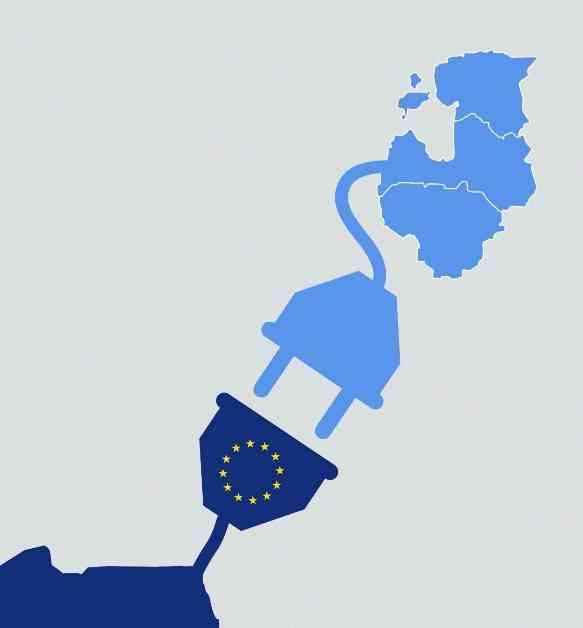Baltic States Achieve Historic Energy Independence from Russia
In a significant milestone on 8 February, the Baltic states successfully severed ties with the Russian electricity system, marking a pivotal moment in reducing their dependence on the Soviet-era network that had long served as a conduit for Russian influence. This transformative move, years in the making, reflects the Baltic nations’ commitment to breaking free from a legacy of energy ties that once tethered them to Moscow’s control.
The journey towards disconnection traces back to 2007 when Baltic transmission operators initiated the process of integrating with the continental European networks. Despite ceasing the purchase of Russian and Belarusian electricity in previous years, the Baltic states maintained a connection to the Moscow-controlled power systems, which persisted as a reminder of their past affiliations. As former Lithuanian Prime Minister Ingrida Šimonytė aptly put it, this transition severs “the last, sad remaining connection from our past that was still partially managed by people in Moscow,” as reported by Politico.
At 9:09 a.m. on that historic Saturday, Lithuania, Latvia, and Estonia officially cut ties with the Russian and Belarusian power systems, entering into an isolated operating mode before seamlessly integrating themselves into the continental European network, as confirmed by Lithuanian Energy Minister Žygimantas Vaičiūnas in an exclusive report by LRT. This momentous shift not only signifies a step towards energy independence but also underscores the Baltic nations’ full integration into the European power system.
Transition to Renewable Energy
As the Baltic states navigate this groundbreaking transition, they are embracing a diverse array of local energy sources, including solar, wind, hydroelectric, and thermal power plants. This strategic integration not only supports the region’s commitment to renewable energy but also aligns with Lithuania’s ambitious goal of achieving 45% renewable energy by 2030, with plans underway to develop offshore wind projects with a potential capacity of 2-3 gigawatts.
However, this transition has not been without its challenges. A disinformation campaign aimed at sowing panic among residents surfaced, with leaflets in Russian falsely warning of impending power outages and urging people to stock up on candles. Despite these attempts to disrupt the transition, the Baltic states remain steadfast in their commitment to a sustainable and independent energy future.
Impact on Regional Dynamics
The disconnection from the Russian energy grid also has broader geopolitical implications, particularly for Russia’s Kaliningrad exclave, which historically relied on the Baltic grid for electricity imports. As questions loom over Kaliningrad’s ability to meet its power demands independently, the region faces a critical juncture in ensuring its energy security amidst shifting dynamics in the Baltic region.
In the wake of Russia’s invasion of Ukraine and subsequent termination of commercial contracts, the Baltic states have witnessed a significant decrease in Russian electricity imports, signaling a seismic shift in energy dynamics. The move towards a more equitable energy market, where the Baltics can trade electricity on equal terms with EU partners, marks a significant departure from the historical leverage that Russia once held in the region.
As Russian independent economists estimate the annual revenue generated from electricity trade with the Baltics and Poland to be around $200 million, the disconnection represents a tangible loss for Russia in terms of regional influence and economic leverage. This transition underscores a new era of energy independence for the Baltic states, signaling a bold step towards a more sustainable and secure energy future.
In conclusion, the Baltic states’ historic disconnection from the Russian energy grid marks a pivotal moment in their journey towards energy independence and regional autonomy. By embracing renewable energy sources and forging new partnerships within the European energy market, the Baltics are paving the way for a more secure, sustainable, and resilient energy future.

















